Scientific fitness nutrition maximizes your workout results.
If you have any queries or suggestions, please feel free to reach out via email to info@harisonfitness.com. We will do everything in our capacity to ensure that you love your experience with us.
When it comes to nutrition, ensure that the calories consumed in each meal are less than those burned during exercise. The results of building muscle and reducing fat will be clearly visible. Do you truly understand the key points of a scientifically sound fitness diet?
01 Scientifically Control Calorie Intake
When we talk about fitness and muscle building, we’re essentially referring to expanding our muscle dimensions through equipment-based workouts. For muscle-building training, it’s crucial to pay close attention to daily dietary habits and promptly replenish the nutrients and energy required during workouts. During muscle-building phases, daily caloric intake should exceed that of the average person by 10%. For individuals with naturally lean physiques aiming to build muscle, caloric intake should be increased by 15% above average levels. This ensures sufficient energy to meet the body’s demands during exercise, leading to enhanced muscle strength and definition, ultimately revealing well-defined muscle contours.
02 Moderately increase protein intake
To achieve healthy and rapid muscle growth in a short period, adequate protein intake is essential, especially during muscle-building training. Reduce fat intake while significantly increasing consumption of high-protein foods. Adult trainees should aim for approximately 2 grams of protein per kilogram of body weight daily. Don’t neglect other essential nutrients like iron, zinc, vitamins, and carbohydrates, which are vital for the body’s energy needs.
During meals, incorporate dishes like chicken breast, fish, shrimp, and eggs to provide your body with protein from multiple sources. It’s important to remind many trainees that consuming high-protein foods both before and after workouts is crucial. This not only supplies effective nutrients for muscle growth but also aids in post-workout muscle recovery.

03 Eat smaller meals more frequently to meet your training energy needs.
Therefore, during fitness training—especially muscle-building workouts—it’s most effective for trainees to increase their daily meal frequency to five meals. Consuming specific amounts of food at designated times—breakfast, mid-morning snack, lunch, mid-afternoon snack, and dinner—not only aids digestion and nutrient absorption but also ensures adequate calorie and protein intake for training. When individuals engage in daily, uninterrupted fitness routines, they continuously burn calories. Achieving a balance between calorie intake and expenditure is when the effects of muscle-building and fat-reducing training become apparent.
04 Optimize the Quality of Fat Intake
Scientific fitness training can help individuals reduce body fat and build muscle during workouts. However, this doesn’t mean avoiding all fatty foods during training. Different foods contain varying qualities of fat, and selecting those with higher-quality fats is key to a balanced diet. For instance, cream and chocolate contain inferior fats that offer no benefit for muscle growth, while foods like avocados and nuts are rich in high-quality fats. Therefore, consuming foods high in quality fats before and after muscle-building workouts significantly aids fitness training.

Scientific fitness training is inseparable from proper nutrition. A well-planned diet provides trainees with optimal conditions for exercise, enabling them to gradually convert the calories and protein consumed into muscle through effective workouts. This process helps reduce body fat and increase muscle mass.




Leave a Reply
Want to join the discussion?Feel free to contribute!